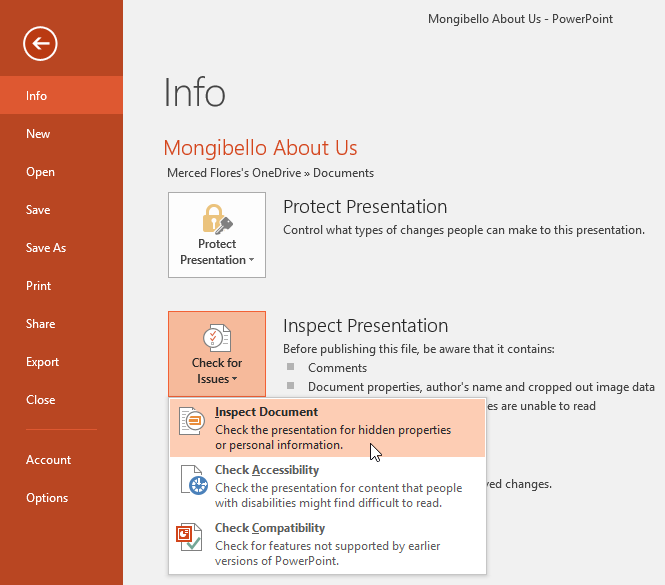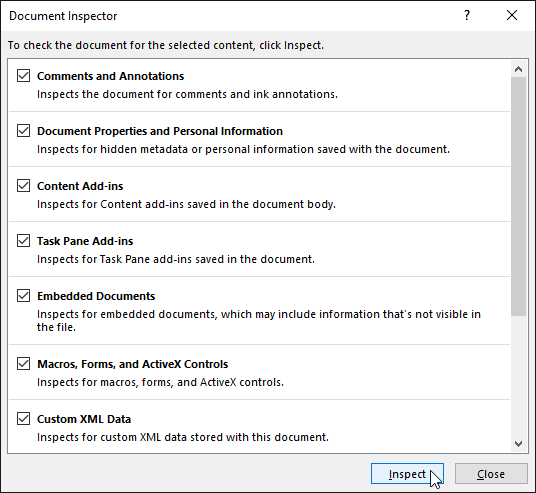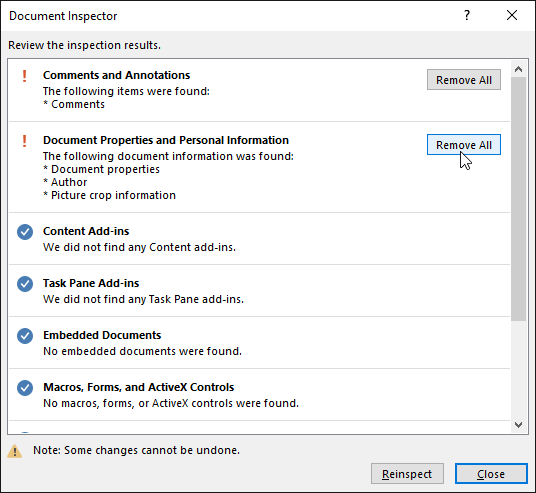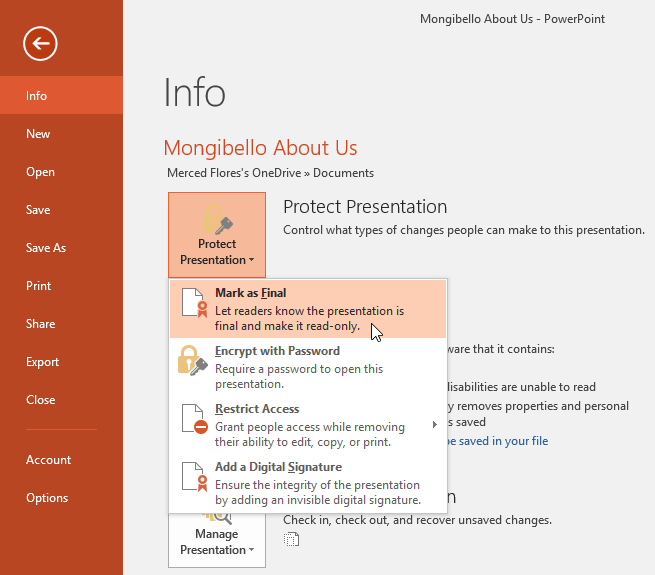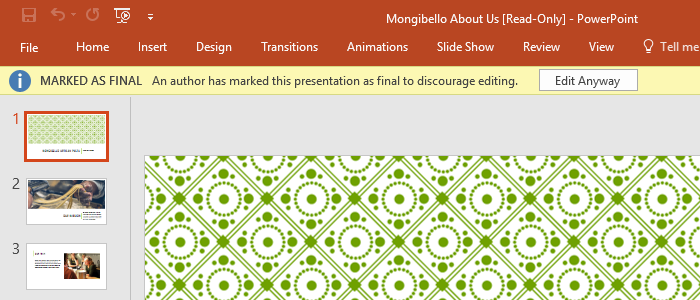Lesson 27: Inspecting and Protecting Presentations
/en/powerpoint2016/reviewing-presentations/content/
Introduction
Before sharing a presentation, you'll want to make sure it doesn't include any information you want to keep private. You may also want to discourage others from editing your file. Fortunately, PowerPoint includes several tools to help inspect and protect your presentation.
Watch the video below to learn more about inspecting and protecting presentations in PowerPoint.
Document Inspector
Whenever you create or edit a presentation, certain personal information may be added to the file automatically—for example, information about the document's author. You can use Document Inspector to remove this type of information before sharing a presentation with others.
Because some changes may be permanent, it's a good idea to use Save As to create a backup copy of your presentation before using Document Inspector.
To use Document Inspector:
- Click the File tab to go to Backstage view.
- From the Info pane, click Check for Issues, then select Inspect Document from the drop-down menu.
- Document Inspector will appear. Check or uncheck the boxes, depending on the content you want to review, then click Inspect. In our example, we'll use the default selections.
- The inspection results will show an exclamation mark for any categories where it found potentially sensitive data, and it will also have a Remove All button for each of these categories. Click Remove All to remove the data.
- When you're done, click Close.
Protecting your presentation
By default, anyone with access to your presentation will be able to open, copy, and edit its content unless you protect it. There are several ways to protect a presentation, depending on your needs.
To protect your document:
- Click the File tab to go to Backstage view.
- From the Info pane, click the Protect Presentation command.
- In the drop-down menu, choose the option that best suits your needs. In our example, we'll select Mark as Final. Marking your presentation as final is a good way to discourage others from editing the file, while the other options give you even more control if needed.
- A dialog box will appear, prompting you to save. Click OK.
- Another dialog box will appear. Click OK.
- The presentation will be marked as final. Whenever others open the file, a bar will appear at the top to discourage them from editing the document.
Marking a presentation as final will not prevent someone from editing it because they can just select Edit Anyway. If you want to prevent people from editing it, you can use the Restrict Access option instead.
Challenge!
- Open our practice presentation. If you opened our practice presentation in order to follow along with the lesson, be sure to download a fresh copy.
- Use Document Inspector to check and remove any hidden information.
- Protect the document by marking it as final.
- When you're finished, the top of your presentation should look something like this:
/en/powerpoint2016/modifying-themes/content/


